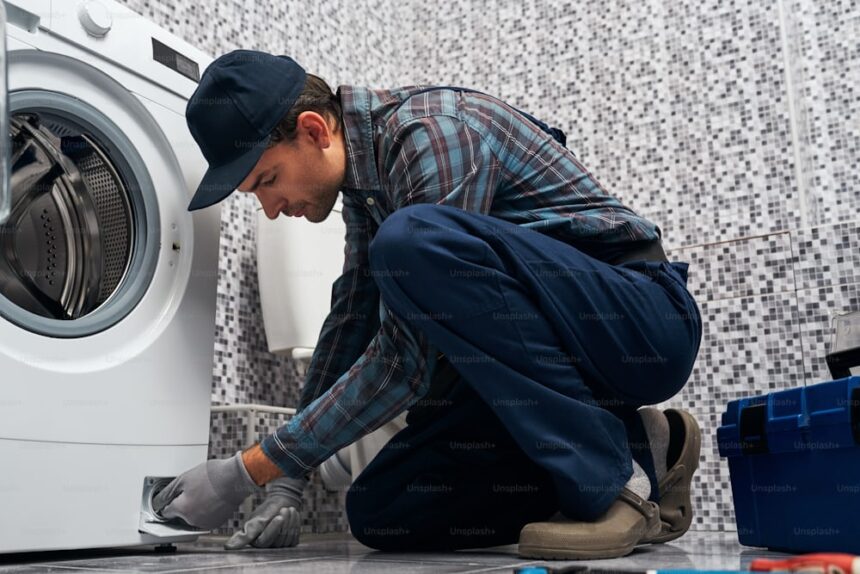A sewer backup happens when a clog forms on your premises’ primary sewer line. Dirty waste water and foul smell from the sewer system are some of the signs of a sewer backup. Knowing the causes of sewer backups and taking preventive measures such as drain cleaning can help avoid health risks associated with exposure to sewage wastewater. Here are five causes of sewer backups and ways plumbers can clear and prevent them:
1. Blocked Pipes
The main sewer line in your home can become clogged, causing a backup. Items containing large particles, when flushed or pushed down the drain, have the potential to result in drain clogging, subsequently leading to backups. Backups from the sewer line can cause plumbing issues in various places, such as kitchen drains in different rooms and toilets. A backup in a specific drain will result in a clog in that particular drain.
To prevent backups in drains and the main sewer line, avoid throwing large amounts of food particles down the drains. To reduce the risk of clogs in the main sewer lines, refrain from flushing diapers, facial tissues, paper towels, and other non-flushable items. Schedule pipe inspection and drain cleaning every few years. This makes sure clogs and other blockages are cleared from the drainage areas.
2. Tree Roots
Your sewer line may have moisture and nutrients that attract trees and plants. Gradually, the roots of trees and plants tend to grow over and around your piping as they seek moisture and nutrients. The tree roots may rap around the pipes, causing them to crush. These penetrating roots infiltrate sewer pipes and create blockages that cause sewer backup. Old homes with clay piping tend to be more susceptible to damage caused by tree roots. The roots grow into tiny holes or cracks in the clay pipes and cause blockage.
You may use metal or stone root barriers around your pipes to prevent sewer backup caused by tree roots. An expert will help you install root barriers around tree bases to restrict growth while safeguarding your utility lines and other underground utilities. Make sure to plant trees a safe distance away from your pipes to reduce the risk of roots growing into the pipes and causing sewer blockages.
3. Damaged Sewer Pipes
Your sewer pipes may be damaged by earth movements, which may cause broken pipes. Lack of adequate ground support may cause pipes to collapse. Damages caused by earth movements and inadequate ground support can be common in old homes with old and worn-out piping. Iron pipes that have been used for a long time may deteriorate and collapse. A broken or collapsed sewer line may cause sewage backup. Replace old sewer lines to make your pipes more resilient and decrease the risk of breakage.
4. Heavy Rains
Prolonged heavy rains may cause sewer systems to exceed the limit of water they can carry. Excess water on the sewer systems can lead to sewer backup. Areas prone to floods may overwhelm sewer systems, leading to sewage backup in your premises. Prevent flooding by installing gutters and downspouts all around your property. This can lower the amount of overflow going to your sewer pipes and decrease the risk of sewer backups caused by blockage of the main sewer lines.
Installing a sump pump will help to efficiently remove excess water from your property. Sump pump systems are able to collect excess water inside a sump before pumping it out to avoid an overload of your sewer system. Make sure to clean your pump during heavy rains to lower the risk of clogging and prevent sewer line blockages.
5. Sewer Age
Old homes using old sewers tend to use clay piping or iron piping. These components are likely to deteriorate over time. Stronger materials, such as PVC piping, also deteriorate with time and become more likely to collapse as they become older. The risk of sewer backups increases when sewer systems become old. Replace older pipes with new pipes made of metallic material or durable and new plastic piping to prevent sewer backups.
Try Drain Cleaning Today
Dealing with sewer backups can be quite disruptive. They can potentially lead to water damage to your property and health hazards for you and your family. Taking preventive measures and scheduling regular cleaning helps lower the risk of backups. Contact experienced plumbing service providers today to learn about the causes of sewer backups and what you can do to clear and prevent them.




